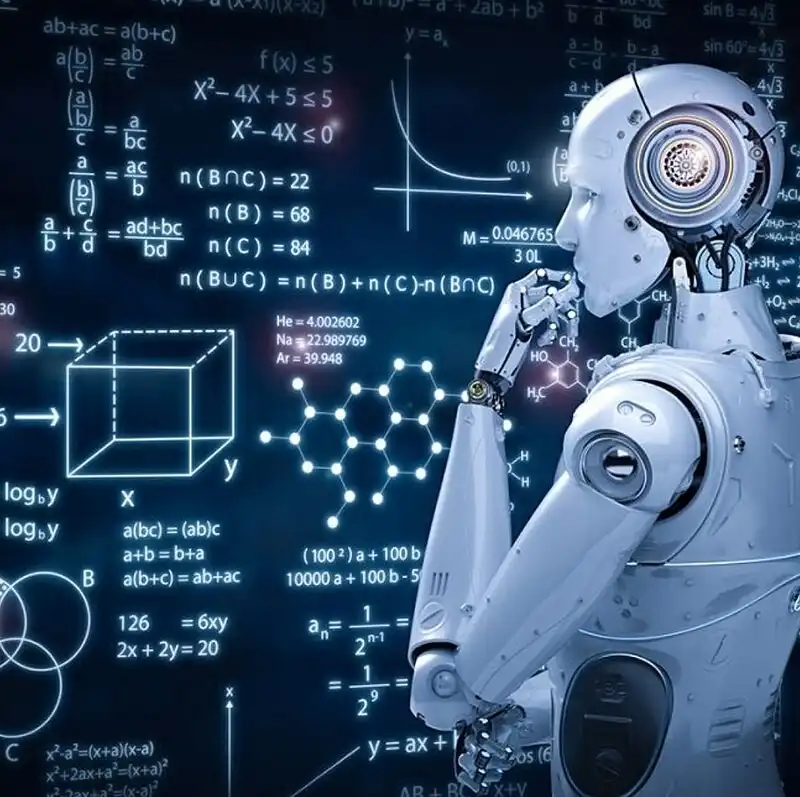In today’s tech world, two buzzwords often dominate conversations; Artificial Intelligence and Data Science. These seemingly distinct fields, however, are intricately connected, representing two sides of the same coin. However, there are differences in some methods and techniques which could help you choose the right choice for a career.
Let’s explore these fields, unravel their connections, distinctions, and the promising career avenues they offer.
The Relationship between Artificial Intelligence and Data Science
The Foundation: Data Science
Data Science serves as the bedrock for many technological advancements, utilizing statistical methods and algorithms to extract meaningful insights from vast datasets. It analyzes the mountains of information to uncover hidden patterns, trends, and correlations.

In essence, Data Science is the craft of transforming raw data into actionable knowledge. It involves a meticulous process of data collection, cleaning, analysis, and interpretation. The goal is to turn data into a valuable resource that businesses and other fields can leverage for informed decision-making.
The Brain: Artificial Intelligence
Now, enter the brain behind the brawn – Artificial Intelligence. AI takes the insights generated by Data Science a step further by enabling machines to learn, adapt, and make decisions autonomously. It’s the technology that empowers machines to simulate human intelligence, mimicking tasks such as speech recognition, problem-solving, and decision-making.

AI thrives on algorithms that learn from data, identifying patterns and making predictions without explicit programming. Machine Learning (ML) and Deep Learning, subsets of AI, play pivotal roles in this evolution, providing machines with the ability to improve their performance over time.
Learn more about Future Applications of Conversational AI in Healthcare
Key Variances between Artificial Intelligence and Data Science
Scope and Purpose
Data Science is the groundwork – the detective solving the mysteries within data. Its primary objective is to extract insights and inform decisions based on evidence gathered from datasets.
On the other hand, Artificial Intelligence is the executor, utilizing those insights to make decisions, automate processes, and even perform tasks without explicit instructions.
Methods and Techniques
Data Science employs statistical techniques, machine learning algorithms, and data visualization tools to uncover patterns. It’s about making sense of the past and present.
In contrast, AI dives into the future, utilizing predictive modeling, neural networks, and natural language processing to enable machines to make decisions and perform tasks without human intervention.
Application in the Real World
Data Science finds applications in diverse fields – from healthcare and finance to marketing and sports. It’s about optimizing processes and making informed choices based on data.
Know more practical applications of Data Science in Healthcare, Medicine and Clinical Data.
AI, on the other hand, brings automation and intelligence to these fields, with applications ranging from virtual assistants and autonomous vehicles to fraud detection and personalized recommendations.
Find out more about Top 11 AI Models and Tools for Generative AI in Healthcare

Navigating Skills for Success: Choosing Between Artificial Intelligence and Data Science
Embarking on a journey into the tech world? Understanding the differences in skills required for Artificial Intelligence and Data Science can be your compass. Let’s break down the skills, helping you decide which field aligns with your strengths.
1. Data Wrangling Prowess
Data Science: A knack for cleaning and organizing data is essential. If you enjoy transforming raw information into a structured narrative, Data Science may be your calling.
AI: While understanding data is crucial, the focus shifts to using it for machine learning algorithms. If you find joy in crafting algorithms, AI might be your domain.
2. Statistical Fluency
Data Science: Statistical know-how is pivotal. If diving into probability distributions and hypothesis testing excites you, Data Science is your arena.
Find out Answers to Frequently Asked Questions about Data Science vs Statistics in 2024
AI: While a statistical foundation is valuable, AI often requires a deeper dive into machine learning principles. If you love algorithms and predictions, AI beckons.
3. Coding Confidence
Data Science: Proficiency in Python or R is crucial. If coding for data analysis and visualization resonates with you, Data Science is a strong fit.
Click here for Beginner’s Step by Step Guide on Genomic Data Analysis in Python and R Programming
AI: Coding is the language of AI. If the idea of crafting intelligent systems using code intrigues you, AI is where you should explore.
4. Machine Learning Mastery
Data Science: Understanding machine learning basics is essential. If applying algorithms to extract insights is your forte, Data Science aligns.
Know more about How Machine Learning is Applied in Bioinformatics
AI: Machine learning is the core of AI. If the idea of machines learning and adapting autonomously excites you, AI is your realm.
5. Deep Learning Enthusiasm
Data Science: While not a primary focus, understanding deep learning basics can be beneficial for complex data sets.
AI: Deep learning is the powerhouse of AI. If working with neural networks and tackling intricate problems is your interest, AI is the path.
6. Data Visualization Skills
Data Science: Proficiency in tools like Tableau or Matplotlib is key. If creating compelling visuals to communicate data insights appeals to you, Data Science is fitting.
AI: While important, the emphasis might be less. If you lean more towards crafting algorithms than visualizing data, AI might be your choice.
7. Domain Knowledge
Data Science: Knowing the industry you’re working in enhances your ability to derive meaningful insights. If you enjoy applying data solutions to specific fields, Data Science is a match.
AI: Domain knowledge adds depth to AI applications. If tailoring intelligent systems to specific industries intrigues you, AI is your calling.
8. Problem-Solving Skills
Data Science: A knack for methodical problem-solving is crucial. If breaking down challenges and developing creative data-driven solutions excites you, Data Science is a strong fit.
AI: Problem-solving is at the core of AI. If tackling complex challenges using intelligent systems is your passion, AI is where you should explore.
9. Communication Abilities
Data Science: Strong communication skills are vital. If conveying data-driven insights to varied audiences is your strength, Data Science aligns.
AI: Effective communication is crucial. If explaining complex algorithms and collaborating on AI projects resonates with you, AI is the field.
10. Continuous Curiosity
Data Science: A mindset of continuous learning is essential. If staying updated on data tools and techniques is your groove, Data Science is a good fit.
AI: Innovation drives AI. If a constant thirst for learning about the latest AI developments and advancements excites you, AI is your realm.
In Conclusion: Your Journey Awaits
As you consider Artificial Intelligence and Data Science, Remember that these skills are not fixed milestones but stepping stones. The ability to adapt, learn, and grow is as crucial as the technical know-how.
If you thrive in extracting insights and love coding for data, Data Science awaits. If crafting intelligent systems, leveraging algorithms, and diving into machine learning captivates you, AI is the path. Choose the realm that aligns with your strengths, and let your skills pave the way for a fulfilling journey.



